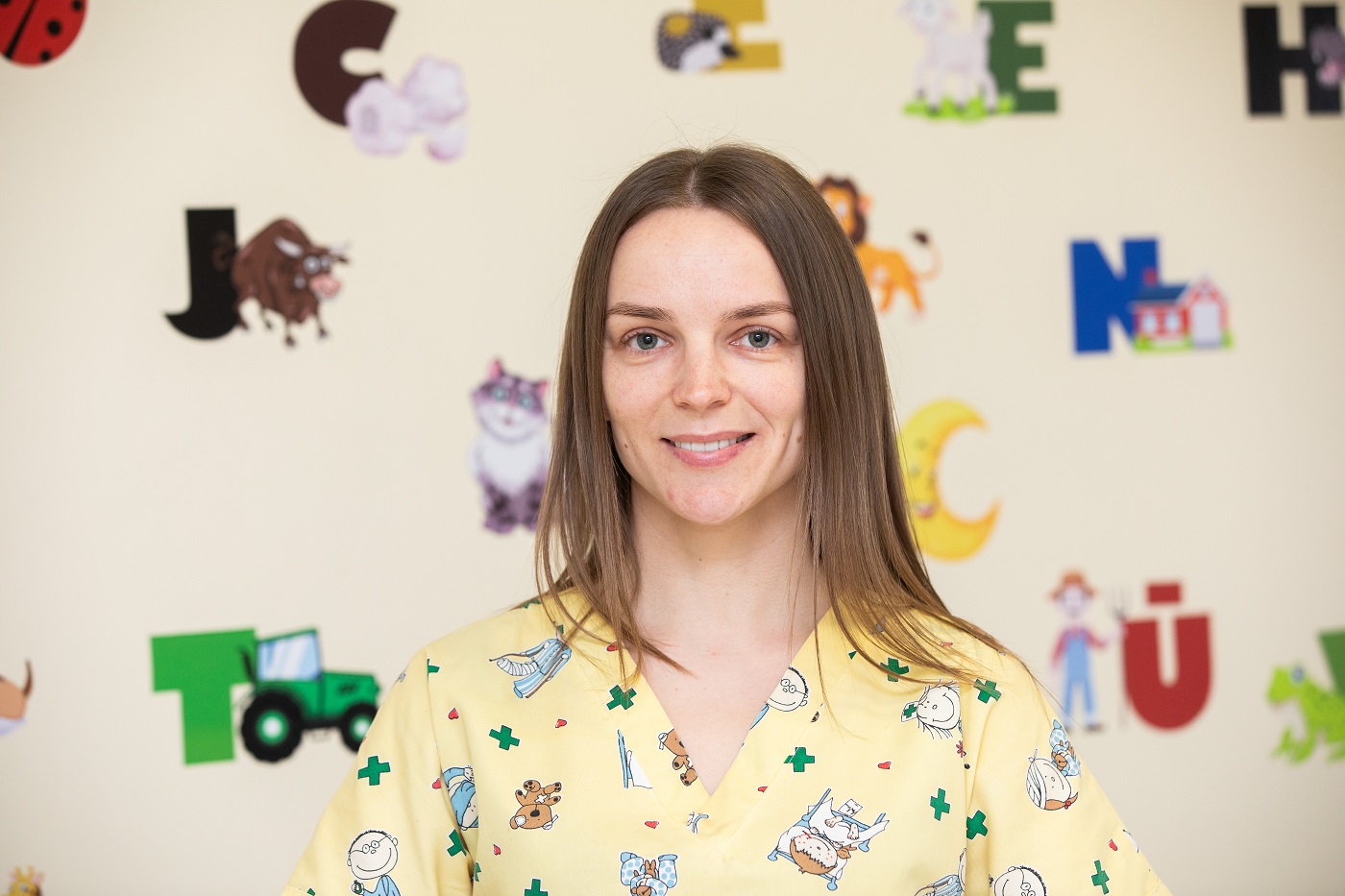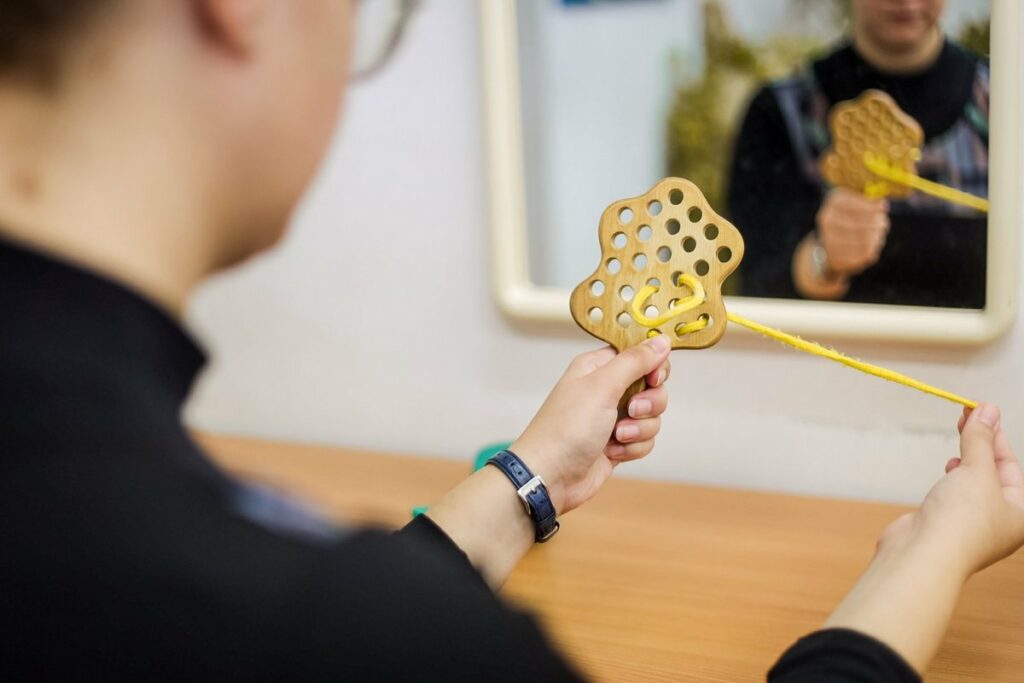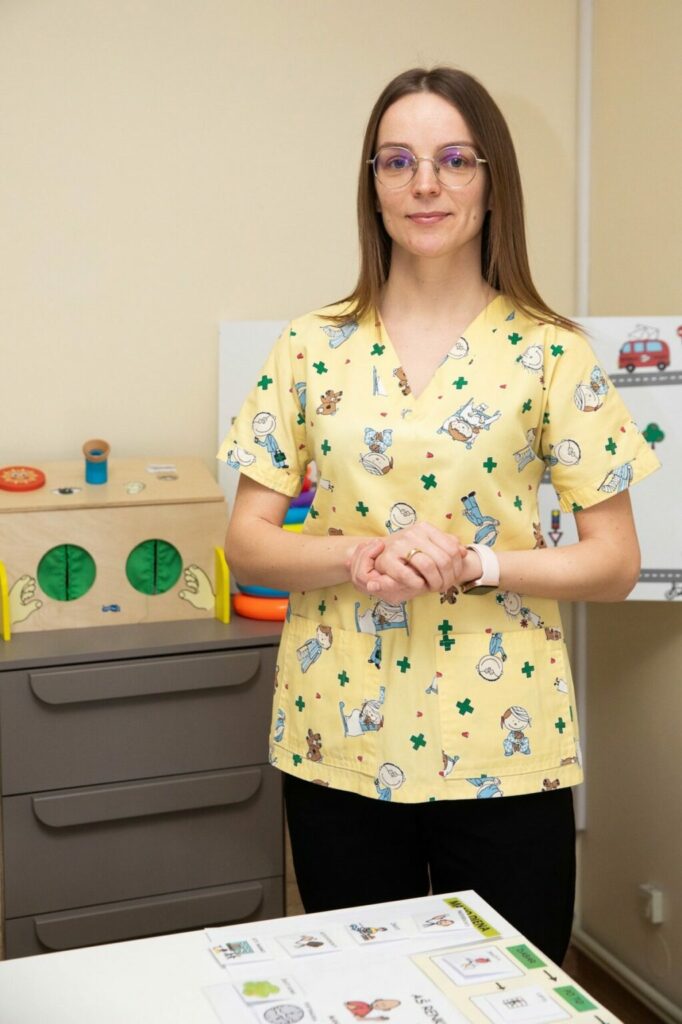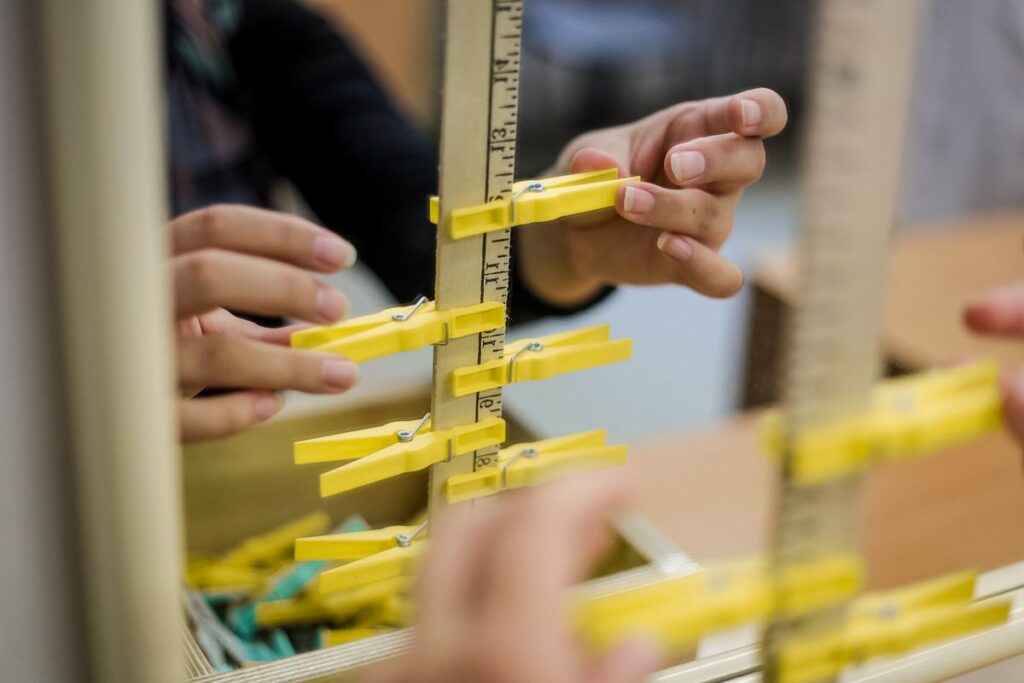Occupational Therapist Founds Private Clinic to Help Children

“I have always felt deep in my heart that in order to fulfil myself, I need to work with the little ones,” says Valda Gulbinienė, occupational therapist at the Department of Psychiatry of the Lithuanian University of Health Sciences and lecturer at the Department of Rehabilitation.
A few years ago, her infinite love for children and her desire to help them live a better life inspired her to set up a private clinic. Today, using state-of-the-art treatment methods, Valda Gulbinienė, together with an experienced professional team of specialists, helps patients with mental impairments not only to recover their impaired functions, but also to acquire the social skills they need for daily life.
Inspired by children, encouraged by colleagues
Children with developmental disabilities often experience sensory integration disorders. They experience difficulties such as sensitivity when washing their head, clipping their nails or cutting their hair. They are irritated by sounds, touches, and food textures. These everyday activities, which are common to us, present huge challenges for them.
“Occupational therapists are the only professionals who have the expertise to work with these children, so our immediate intervention at an early age is crucial. Unfortunately, families have to wait in queues for up to half a year to get into public development centres,” says Valda Gulbinienė.
She says that in childhood development centres, children with mental impairments are diagnosed while occupational therapy is only a short intervention, usually providing families with guidance on how to work at home.

However, these children need ongoing support, which is why parents often look for private occupational therapists and other professionals to provide comprehensive developmental services.
“It’s impossible to restore development in a week or two,” says the occupational therapist, adding that the desire to make these services more accessible was one of the reasons she set up her own clinic.
“I felt very supported by my colleagues in psychiatry, who, recognising the growing need for the professional help, kept asking if I was working privately and encouraged me to do so. Finally, the day came when I realised that it was no longer about me, but about the children who needed help, and I decided I had to do it. On 9 April 2021, I registered my clinic “Savarankiški vaikai” (Independent Children). Today, I believe it was the best decision of my life. I get to meet so many wonderful people who bring invaluable experience to me and my team. I am immensely grateful to the parents of the patients for choosing us, for trusting us, and for enjoying the results together”, said the founder of the clinic.
Professional team – the key to success

“The main goal of our team is to help patients become independent and to enable them to enjoy a high quality of life to the maximum. Clients usually present with developmental delays that impair a child’s independence, self-control, fine motor skills and eye-hand coordination. We often see young patients who need help in developing attention span to match their developmental age,” says V. Gulbinienė, adding that a professional team has been the key to success since the start of private practice.
The clinic team currently consists of a child-adolescent psychologist, a speech therapist, and two occupational therapists. One of them is a former student of V. Gulbinienė.
“I noticed my colleague’s high level of competence when she was doing her internship at the Department of Psychiatry. Her diligence and commitment are of the highest level. Knowing from experience that at the Lithuanian University of Health Sciences we gain the power to change lives with our knowledge, and I had no hesitation in inviting her to join my team as an occupational therapy graduate. She has a great connection with children and parents and the results are priceless.”
She also praises the other specialists at the clinic: “Together, we achieve what is meaningful, not what is simple and easy. We believe that all the time in the world belongs to children.”
University students often do internships at private medical institutions, including the LSMU Department of Psychiatry, where V. Gulbiniene also teaches. “We work with children and adolescents with various mental and behavioural disorders. I am glad that while working at the University I can show the students the cases that are the most difficult not only in terms of diagnosis, but also in terms of providing comprehensive care.”
According to V. Gulbinienė, LSMU pays a lot of attention to ensuring that young specialists take away the highest level of knowledge and skills from the University. What makes the studies here special is that every lecturer also works in clinical practice, so all the theory is based on clinical practice.
It’s not just Lithuania that is facing a shortage of available aid
V. Gulbinienė says that all clients’ stories are unique and very individual. However, she notes a trend that children with mental disorders do not receive comprehensive and timely help not only in Lithuania but also in other European countries.

“I am most pleased and also saddened by the increasing number of expatriates coming for consultations. We get clients from England, Ireland, and Germany. It is great that they choose us, but it is unfortunate and sad that they do not get quick and adequate help in those countries. One client from Germany flew in for a month because of developmental delays. They stayed close to the facility so that they could attend classes every day. We achieved a lot in that month. The child’s independence and fine motor skills recovered in line with his development, and he was able to apply the skills he had learnt at home. However, when they came back and didn’t get their turn with the specialists in time, the situation deteriorated again. After this event, the family decided to return to Lithuania. For me, this is the highest appreciation.”
When asked if she plans to expand her activities and what plans she has for the future, the LSMU lecturer says she doesn’t want to make too many plans.
“They say that plans and ideas should be discussed quietly. Today’s ambition is to build a sensory room, gain training accreditation, and increase our sponsorship so that we can provide free services to as many clients as possible.”
